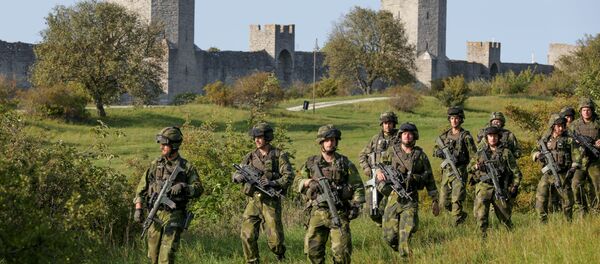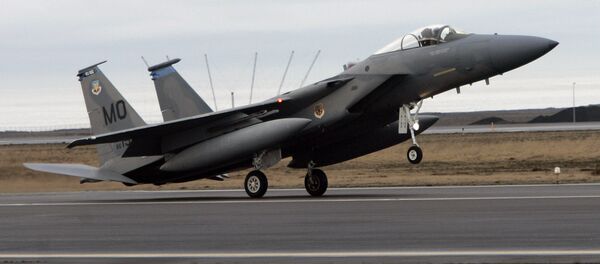"Such things happen from time to time," Simon said.
Oddly enough, the Norwegian defense authorities were totally unaware of the episode.
"Verdens Gang has informed us that the Swedes have responded to such an episode, but we have Armed Forces unaware of this. We are checking now what this could be," Norwegian Air Force spokesman Brynjar Stordal told Verdens Gang.
On the other hand, Swedish media became seemingly excited over a recent incident involving Russian military planes. Earlier this week, Russian bombers reportedly flew some 2,500 meters below Icelandair's Boeing 757 from Reykjavik to Stockholm over the Norwegian Sea. According to NATO sources, several member states sent fighter jets in the air to identify the "threat."
Per Fröberg, press officer for the Swedish Civil Aviation Administration, pointed out the Russian aircraft had remained within the allotted airspace regarding distances from passenger aircraft.
"At cruising altitude the minimum permitted distance is 300 meters vertically," Fröberg told Swedish daily Dagens Nyheter.
Whereas Swedish military officials and Icelandic sources portrayed the episode as a threat to flight safety, Jan-Olov Bergling, sector manager at the Swedish aviation industry, brushed aside risks of collision.
"No, it is unlikely. The Russian pilots want to survive too," Jan-Olov Bergeling told the Swedish tabloid newspaper Aftonbladet.
Meanwhile, violations of Swedish airspace have become so frequent that they hardly make the news. In August, US reconnaissance aircraft RC-135U flew over Swedish territory south of Karlskrona without permission, the Swedish tabloid newspaper Expressen reported.
In 2015, a report made by the Swedish Defense Ministry on behalf of Swedish daily Dagens Nyheter, showed that Swedish airspace and sea territory had been violated 42 times in the past five years. The number of violations increased from three in 2011 to twelve in 2014.
Despite the fact that Russia is the country often associated with aggression and violation by many Swedes, the US and other friendly NATO members, such as Germany and Norway, turned out to be the biggest violators.
Violations from neighbors in the Baltic Sea basin are to be expected due to the proximity of borders, yet the list included such exotic "guests" such as Monaco, Bahrain and Qatar.





